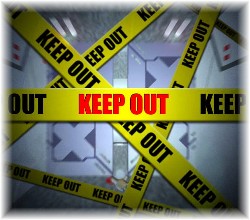Thursday, March 7, 2013
House Passes Ethics Commission Bill
By a 64-1 vote, the House this afternoon approved a bill that would establish an independent Ethics Commission that would investigate allegations of ethical violations by legislators and other elected state officials, state workers, lobbyists and government contractors.
New Mexico is one of nine states that doesn't have an independent ethics commission.
House Bill 190, sponsored by Rep. Brian Egolf, D-Santa Fe, would create an 11-member commission appointed by legislative leaders, the governor and the chief justice of the state Supreme Court.
The panel would oversee New Mexico laws governing campaign finances and lobbyist spending, as well as the Government Conduct Act.
If the commission finds an ethics violation, it would issue a report and that could include a public reprimand or censure of a state official or state employee. If the commission found criminal violations, the evidence would be turned over to law enforcement.
However, the executive director of New Mexico Foundation for Open Government says she has problems with certain aspects of the bill.
“We applaud Rep. Egolf’s effort, but we can’t support a proposal that allows the commission to keep almost all of its work secret — while threatening whistleblowers with fines and jail time for speaking out,” Gwyneth Doland said. “Without all the secrecy — and with more fairness — we could get behind it.”
Under the bill, anyone who discloses any confidential complaint, report, file, record or communication could be found guilty of a misdemeanor and be sentenced to up to a year in jail or a $1,000. In addition to the criminal penalties, someone who breaks confidentiality could be fined up to $25,000 in civil court.
These penalties would apply to commission members and employees as well as the person bringing the complaint.
This is better, at least from a journalist's perspective, than a previous bill the Legislature considered in 2010. Under that bill, anyone, including reporters, who disclosed confidential material could be jailed and fined. Under this bill, I couldn't go to jail, but my sources could.
Egolf said that the confidentiality part of the bill was modeled after the law that created the Judicial Standards Commission, which conducts investigations of judges in strict secrecy.
Egolf noted that he and other legislators have for several years tried to pass bills creating ethics committees.
The bill now goes to the Senate.





